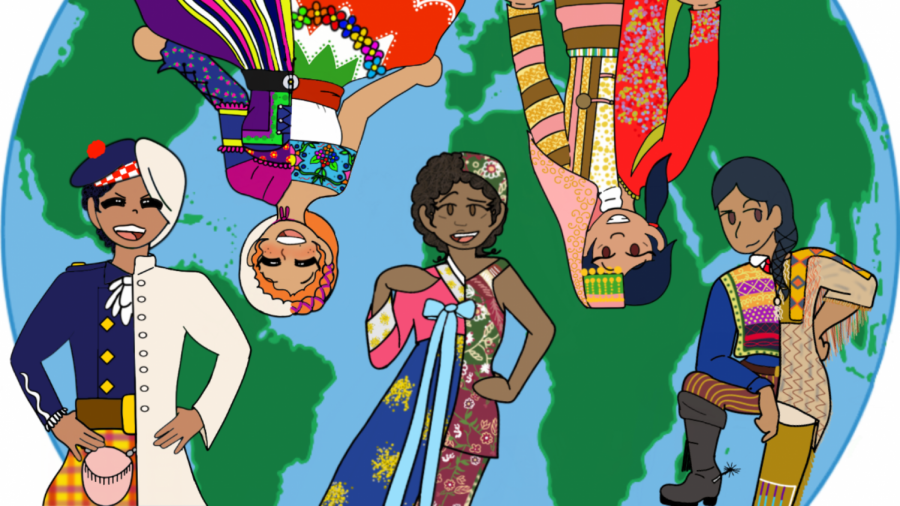Seeking community, mixed students navigate cultural identity
December 15, 2021
Editor’s Note: This article first appeared as part of the October 8 flipbook.
For many, identifying one’s race or ethnicity on a generic form or questionnaire can be achieved with a single, simple checkmark. But for undeclared freshman Narah Green, forms such as these cause a cultural identity crisis.
Green originally identified herself as Black and Korean, but after Green’s mother took a 23andMe test, she revealed 40% of her ancestry came from Puerto Rican descent. With college scholarship deadlines just around the corner, many of those being ethnicity-based, Green felt pressured to fit her complex identity into a box.
“It’s always very confusing,” Green said. “Most of the time, to make my life easier, I say I’m Black because that’s what I look like.”
In the past decade, the population of UT students who identify as two or more races grew from 1.7% in 2011 to 3.6% in 2020. As these demographics continue to trend upwards, many mixed students still struggle to find their cultural footing within the Forty Acres.
Journalism freshman Sofia Elena Chaelin Xochimitl Lee identifies as half Korean and half Indegenious Mexican, Nahua. She said she encounters difficulty being accepted in Korean spaces due to her lack of Korean features.
“At Korean school or going to events that are Korean, they’re like, ‘Why is she here?’” Lee said. “I had a lot of struggles feeling at place just because I didn’t really look the part.”
The lack of acceptance Lee faced when entering Korean spaces at home impacted her perceptions of entering those spaces in college, especially pertaining to clubs featuring Korean ethnicities.
“I wanted to be involved and be around other Koreans but it’s just really intimidating,” Lee said. “Being mixed and then trying to fit in with all these organizations that are only meant for half of you, it leaves you with this feeling of not being enough.”
To help students who feel like Lee, UT’s Counseling and Mental Health Center started a support group called Re:Mixed. The group serves as a safe space for bi-racial students, where they discuss the difficulties of navigating their cultural identities and stands as a focal point for the students involved.
Stephanie Dodoo, assistant director of Diversity, Counseling & Outreach Services at the CMHC — mentions the importance of having spaces like Re:Mixed on campus to help affirm these unique identities.
“Our students who are multiethnic, multiracial often get lost in the shuffle,” Dodoo said. “A place like Re:Mixed is very integral to their sense of belonging, development (and) community building.”
As clinicians involved in Re:Mixed come from similar backgrounds much like the students involved, a further understanding between clinician and student can be established. Dodoo attributes this to making the start of the healing process begin sooner.
“There’s something that’s extremely powerful and healing to be able to receive support from a clinician where you feel like you have a lot of shared experiences,” Dodoo said.
As for Green, she mentions during her journey of finding identity, relating to those around her who also identify as culturally mixed provides the most solace.
“Find different mixed kids, people who are similar to you, (or) have the same issues,” Green said. “Because when you feel like you have a community, there’s no better feeling than feeling like you have someone to talk to.”












